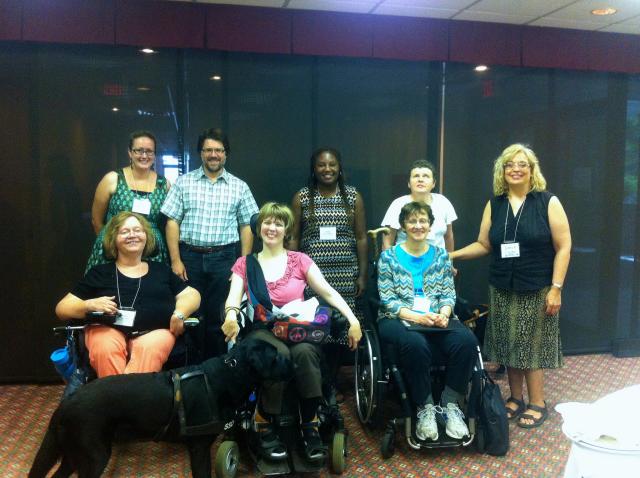Whom did Jesus welcome to his table, and what is God awakening in our hearts today?

The International Day of Persons with Disabilities is celebrated annually on December 3. This year, the day coincides with the first Sunday of Advent, when we traditionally celebrate a theme of hope.
Several years ago, I found hope when I was wrestling with questions of theology and disability. I was working with a diverse group of people with disabilities, caregivers, and allies; we were talking about disability and theology. The United Church had already committed to becoming an “open, accessible, and barrier-free church,” and we were doing some further thinking about the Bible and disability.
We already knew, for example, of biblical stories when Jesus encountered people with disabilities, and his response was often to heal. Sometimes, Jesus said that their faith had made people well; then, they responded. Walking, talking, or seeing was now possible in a way that had been unavailable before. What did this mean for people with disabilities today? Why were they not “healed” in the same way? Did they not have faith?
Our group had already begun to name “cure” differently from “healing,” and recognized that Jesus was bringing about personal transformation by restoring individuals back to community. Understanding the healing stories in this way is perhaps one sign of hope that shows Jesus’ identity as the Christ and reveals a taste of God’s realm.
But our group also wanted to hear more about how people living with disabilities understand God, and how the Bible talks about people with disabilities. We decided to collect stories of people with disabilities in the United Church. What hopes and challenges might people with disabilities want to name for the church? What we received were personal testimonies of people who were living with grief and deep pain because of exclusionary attitudes in the church. People shared that they could not physically access sanctuaries. People were told they were not welcome in the choir or to read scripture because of their disability, and they did not have the right “look.” And people shared that they knew that God loved them, but they were not sure that people in their local church loved them.
(These very personal testimonies moved the group deeply. Some of these stories were interspersed throughout a report on Theologies of Disabilities that was presented to the church in 2015; you can read the full report on the United Church Commons.)
So, where is the hope in this?
For me, the hope is that there are many people who have named their exclusion from the church who are still committed to staying with the church and working to change it. For me, there is hope that theologies of disabilities are being developed that name healing differently from “cure.” For me, there is hope that attitudinal changes are possible, that the local congregation can be a space where true transformative change can occur.
This is why, I think, it is important to honour the International Day for Persons with Disability. It is an opportunity to remember this kind of hope.
Learn more about Disability and Inclusion in the United Church.
May this work offer us all hope.
—Adele Halliday is the Team Leader for Discipleship & Witness in the Church in Mission Unit of The United Church of Canada.